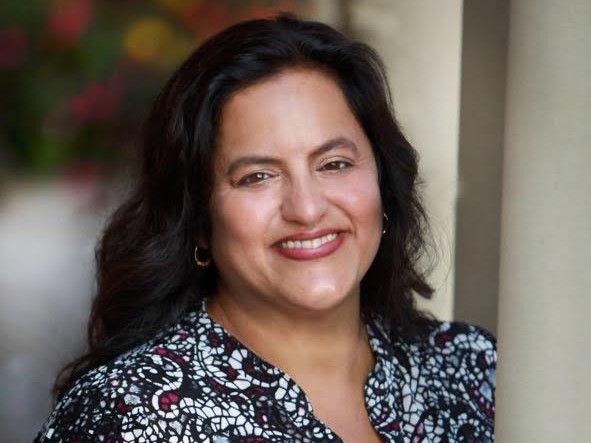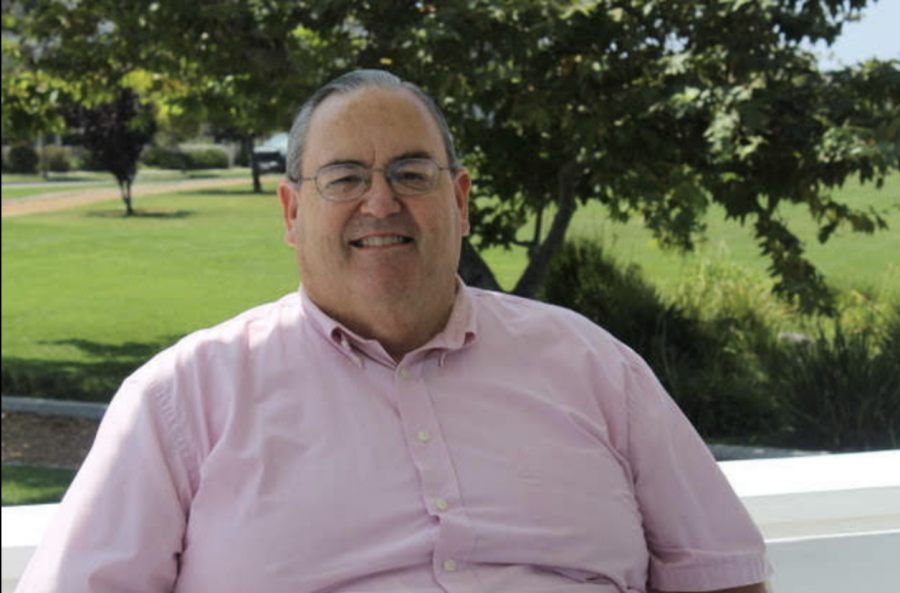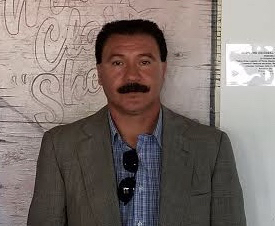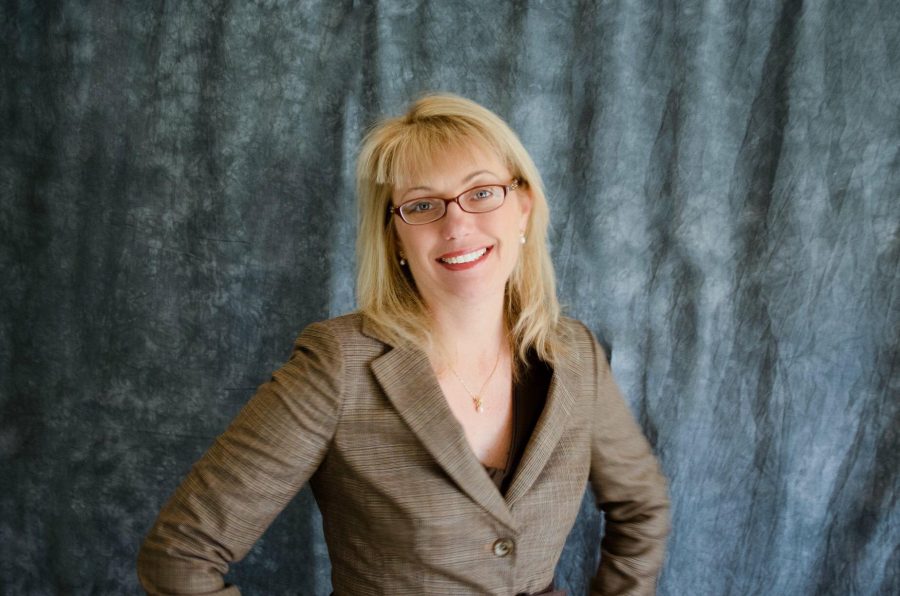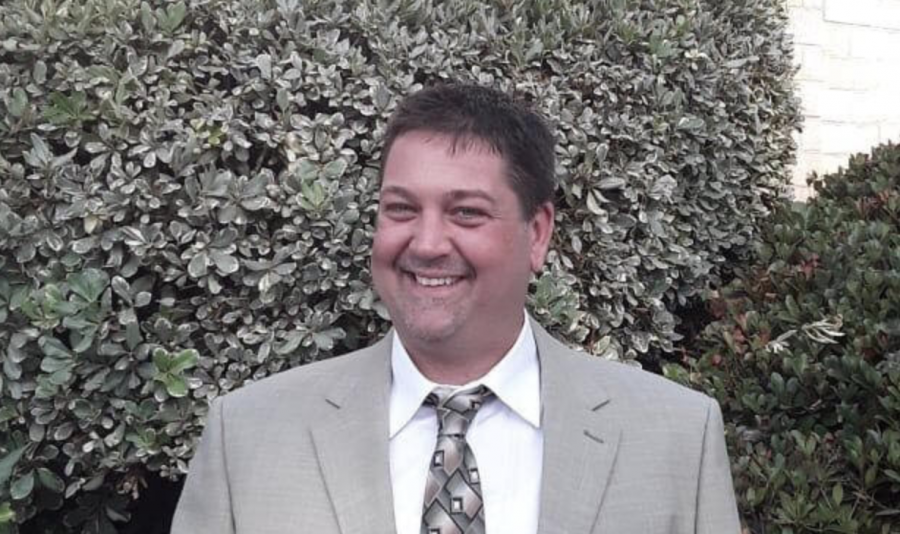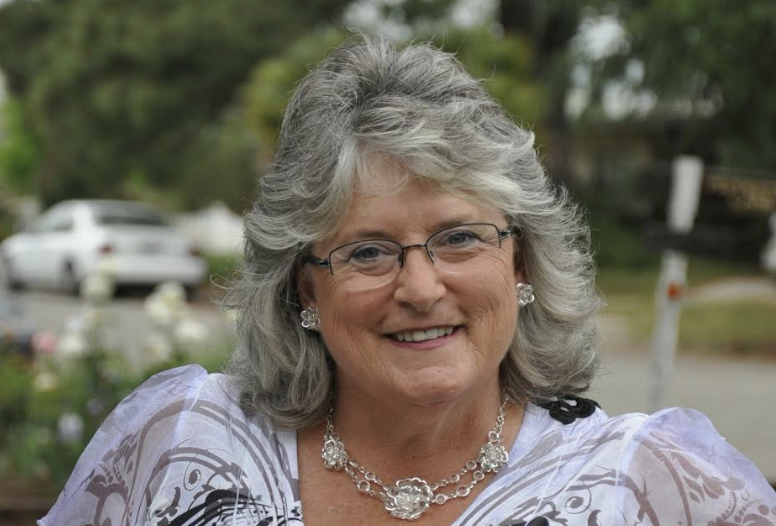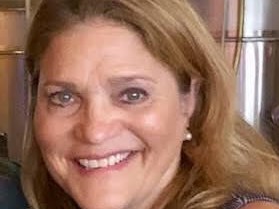INTERVIEWER: What is your background as a Venturan?
MADHU BAJAJ: My family and I came to Ventura in 2005. I grew up in Westlake Village so I was familiar with Ventura, but I started living here in 2005 and my son was about a year old. My husband and I were new business owners in town. We purchased Fast Signs of Ventura, which we now have owned since then. We were just working and got involved in the community right away—that’s kind of our thing—joined the Chamber of Commerce and became active with them, and then as our son got older and went to school, started volunteering in our schools and volunteering in the broader community, as well. So I really love the city of Ventura and it’s important that I give back and ensure that Ventura is an amazing place to live and work. That’s important to me.
INTERVIEWER: At the end of your term, if elected, how will Ventura Unified schools be using technology in ways they aren’t right now? What will be your steps to achieving that result?
BAJAJ: I think technology is really important and I think it’s important that we offer a well rounded and broad approach to education that’s mindful of the usual ways of doing things—that are not just technology focussed. Technology is clearly the wave of our future and making sure that all kids of all ages have access to technology and know how to use it is really important to me. Personally, we had our son on a laptop at the age of one because we knew that computer use and being comfortable and familiar with electronics was going to be important in his future career. And I think I want all kids to have that exposure. I’ve heard stories of kids coming in to do their testing and some of them don’t know how to use a mouse. They’ve never seen a mouse because the most they’ve done is with a finger on an iPad or a cell phone if they’ve even done that. I think at the end of my term I would want to make sure that all kids have access to computers, to laptops and that they know how to use them.
INTERVIEWER: In your opinion, what is the next step to ensuring high school students are prepared for Common Core curriculum and its standardized testing (SBAC)?
BAJAJ: Preparing our high school students for those two things is important, but really we need to be preparing our high school students for life after high school. And so I want to see us really emphasize the strengths of common core as the teaching of how to work collaboratively with other students and with adults because once they get out into the real world, that’s what the real world is. Whether is personal life, whether is professional, whether its a project that you’re working on, people who are more effective at working with other people will do better in life.
The same thing with creativity, critical thinking, communication—it’s all of those. One, they lead to a more rich life—it’s more fun, it’s more interesting—but those are also the skills we need for the future. So I think we need to be providing our teachers with training if they need it and resources so that they can really bring common core teaching alive in our classrooms, and so our students can really benefit from it and learn the concepts, practice them, and then as they move forward with their lives use those in their college career, in their jobs, whatever they choose to do.
INTERVIEWER: The Ventura Unified budget for this year is around 188 million dollars. If I gave you ten million dollars more today to invest in our school district however you see fit, how would you spend it?
BAJAJ: I think I would want to invest the money into making sure that all of our campuses have amazing campus cultures. For students, of course, that’s what school is always about. We have to make sure that our school environments are safe—that they’re nurturing, that they’re conducive to learning—but they also should be kind and caring and supportive. One step up from that, I feel really strongly that if we don’t take care of our staff and out teachers and make sure that they have great work environments, they can’t work at their best on behalf of the kids. I would want to invest in making sure that we have a really happy school community across all schools, across the whole district, so that people feel really included and connected with school.
INTERVIEWER: What do you think is the most pressing issue facing our schools today and how can it be addressed?
BAJAJ: One of the most pressing issues is the achievement gap. Some kids are doing incredibly well in our schools and have access to and are fully engaged in their learning and really benefiting so greatly. Not all students are able to access all of those opportunities, and so really looking at what are the additional supports that we need to put in place to make sure that all kids have access to really great education. I know we have amazing classes, but a lot of times not everybody can get into those classes—or we have amazing programs. And it’s limited how many kids can participate. Looking at what we’re offering, but more than just what we’re offering; what are the challenges that are keeping some kids from participating in these really cool programs that are helping kids succeed, and then provide them with support to make sure that they get on a track for success.
INTERVIEWER: Sometimes to students, school board policy decisions seem to come out of nowhere. Most students don’t know their school board members, don’t know when the board meets, and aren’t informed about the decisions the board makes on a regular basis, like for example decisions about curriculum or disciplinary policies. If you are elected, how do you plan to cultivate a closer relationship between the board and the students, ensuring that they get a chance to speak on issues that pertain to them and are informed of decisions once they happen?
BAJAJ: This is something that’s really important to me. My career has been mostly in non-profit management and a lot of its been in working with youth-serving programs and as a part of that we are trained and we work in ways to ensure that we are always seeking out feedback from the people that we’re trying to serve. And not only seeking out their feedback but including them in the process.
As I’ve been going through my campaign I actually have sat down with my school students a couple of times to talk with them and find out: do they know what a school board is, what do they know that the school board does what are their concerns, what are their hopes and dreams, what do they love about our schools to start getting a feeling of what students want.
I really think that all of our kids, even little ones are brilliant and our students are our future. You guys are really smart and we should be really connecting with you, engaging you more in decision making, in making sure your feedback is asked for but also included with decisions are made and that you’re a part of the process. It’s really so vital.


